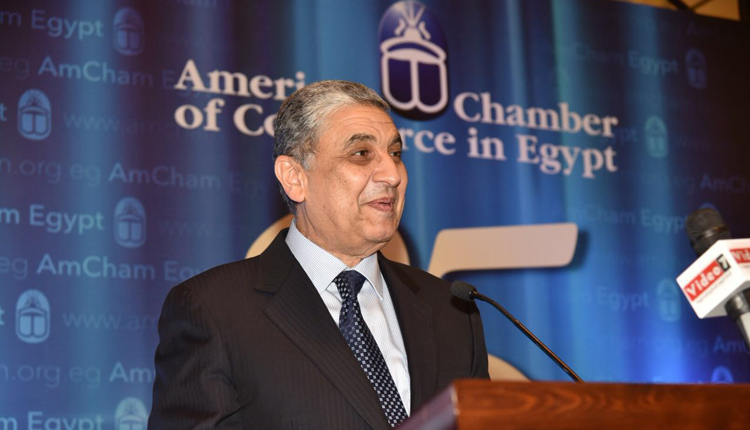Egypt-Sudan electrical interconnection line to be activated in Feb.
Egyptian Electricity Minister Mohamed Shaker said on Tuesday the electrical interconnection line between Egypt and Sudan will be activated within February 2019, while the negotiations with Saudi Arabia, Gulf countries, Greece, and Cyprus are underway.
That came during his speech in the opening of the World Future Energy Summit (WFES) on Monday. WFES is held on January 14 – 17 within Abu Dhabi’s Sustainability Week.
The minister revealed that Egypt’s safe reserve of power increased by 25 percent due to mega projects accomplished in the sector throughout the past five years.
Shaker added that the voltage of transmission lines is 500, and that their capacity increased to 6,000 kWh from 2,300 kWh.
The minister explained that Egypt deals with reputable international companies to execute projects. That guarantees safety and quality, and secures energy for any investment project in the country.
He said Egypt’s position in the energy sector facilitates fundraising from international entities for those projects. As for the contribution of renewable energy, Shaker stated that its share in electricity generation will rise to 20 percent by 2020.
He added that was being achieved under the auspices of President Abdel Fatah al-Sisi who always reiterates that electricity is part of Egypt’s national security.
Shaker clarified that a solar power station with a capacity of 1,500 megawatts will be accomplished by mid-2019.
The minister added that four solar plants were connected to the grid as a result of spending LE 55 billion on internal high-voltage networks, and LE 24 billion on distribution networks over the past two years. That has led to increasing the capacity of the national grid by 100 percent to 25,000 MW.
Shaker disclosed that the ministry is getting offers, including Emirati ones, to execute wind energy projects in the Red Sea governorate. In his speech at the High-Level Forum Africa-Europe in Vienna, Sisi said in December that he aspires to link Europe and Africa by a fiber optic network.
Source: Egypt Today


